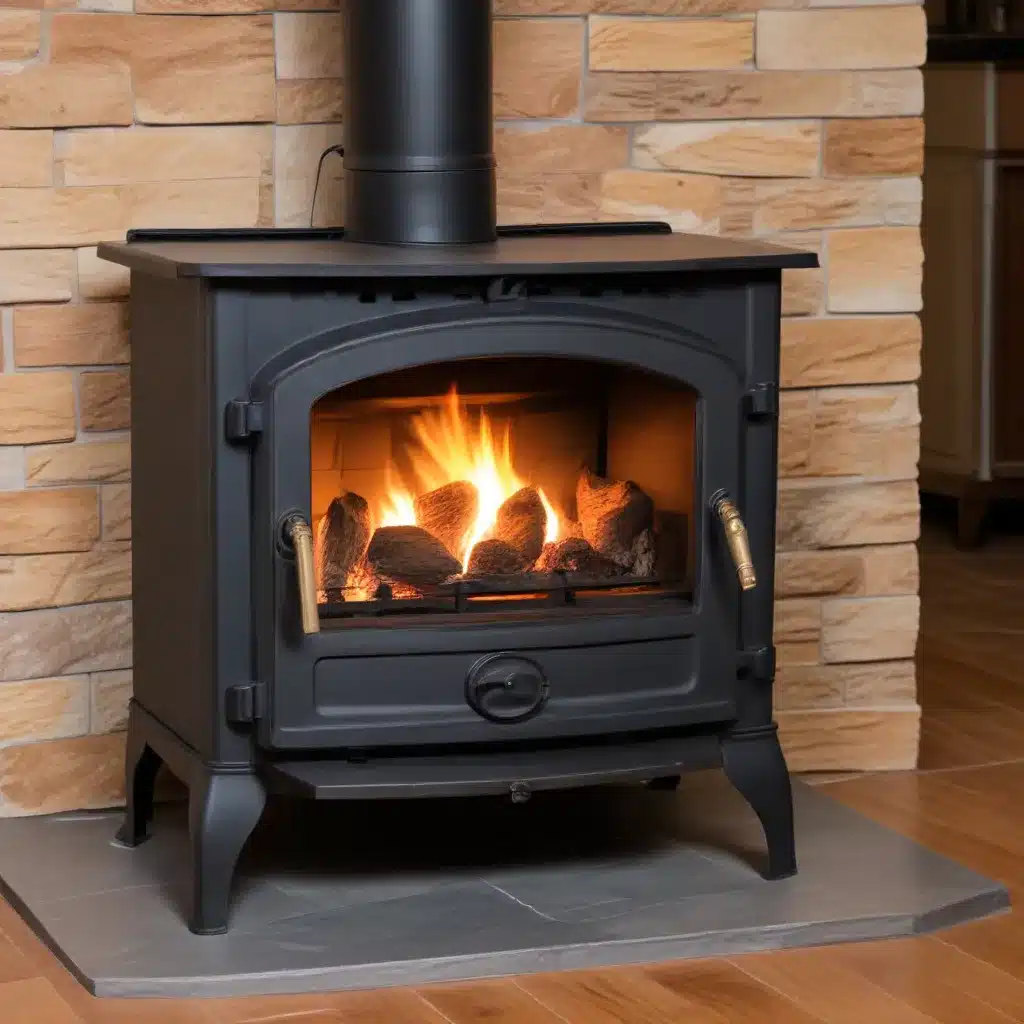
Understanding the Advantages of Modern Wood Stoves
As a seasoned expert in wood stoves and heating solutions, I’ve seen firsthand the significant advancements in wood stove technology over the years. Today’s certified wood stoves offer a range of benefits that make them an attractive choice for homeowners seeking efficient, eco-friendly, and cost-effective heating solutions.
One of the primary advantages of upgrading to a certified wood stove is the dramatic improvement in energy efficiency. The latest EPA-certified models can achieve efficiency levels of up to 80% or more, compared to older, non-certified stoves that may only reach 50-60% efficiency. This increased efficiency translates to substantial savings on your fuel costs, as you’ll be able to heat your home using less wood.
Moreover, the clean-burning technology in certified wood stoves significantly reduces harmful emissions, making them a more environmentally-friendly heating option. These modern stoves are designed to burn wood more completely, resulting in lower particulate matter and carbon monoxide emissions. This not only benefits the environment but also contributes to improved indoor air quality, creating a healthier living space for your family.
Catalytic vs. Non-Catalytic Wood Stoves
When considering a wood stove upgrade, one of the key decisions you’ll need to make is whether to choose a catalytic or non-catalytic model. Each type has its own unique advantages and considerations.
Catalytic wood stoves are renowned for their ability to achieve long, low-temperature burns, often lasting up to 12 hours or more on a single load of wood. This feature allows for more efficient heat distribution and reduced fuel consumption. The catalytic combustor, which helps to re-burn the smoke and particulates, is a crucial component that enables these extended burn times and enhanced efficiency.
However, as one of the Reddit users pointed out, catalytic stoves do require more maintenance and attention to operate effectively. The catalytic combustor can become clogged or damaged over time, necessitating regular inspection and occasional replacement. Additionally, maintaining the proper chimney temperatures is crucial to prevent creosote buildup, which can be more of a concern with catalytic stoves, especially in taller chimneys.
On the other hand, non-catalytic wood stoves offer a simpler and more straightforward operation. They may not achieve the same long-burn capabilities as catalytic models, but they are generally less prone to maintenance issues and can be a more user-friendly option, particularly for those who may not be as experienced with wood stove operation. Non-catalytic stoves can still achieve impressive efficiency levels and provide reliable, consistent heating.
When choosing between a catalytic or non-catalytic wood stove, it’s essential to consider your specific heating needs, the size of your home, the characteristics of your chimney, and your personal preferences for maintenance and operation. Consulting with a reputable wood stove installer or retailer can help you make an informed decision that best suits your requirements.
Considerations for Upgrading Your Fireplace
In addition to upgrading to a certified wood stove, homeowners may also want to consider improving the efficiency and performance of their existing fireplace. One of the key factors to address is the condition and suitability of the chimney.
As mentioned in the Reddit discussion, taller chimneys can be more prone to creosote buildup, particularly when used with low-temperature, slow-burning catalytic stoves. Ensuring that your chimney is properly lined and maintained can help mitigate this issue and improve the overall efficiency and safety of your heating system.
Another important consideration is the air flow and ventilation in your home. Proper air supply and adequate ventilation are crucial for the efficient and safe operation of any wood-burning appliance. Upgrading or modifying your home’s ventilation system may be necessary to ensure that your wood stove or fireplace is functioning optimally and not compromising indoor air quality.
Exploring Energy-Efficient Heating Alternatives
While wood stoves and fireplaces can be excellent heating solutions, homeowners should also be aware of other energy-efficient heating options that may be worth considering, especially when undertaking a comprehensive home upgrade.
One such option is the installation of a heat pump system. Heat pumps, both air-source and geothermal, can provide efficient heating and cooling by transferring heat rather than generating it. These systems can significantly reduce energy consumption compared to traditional heating methods, and they may be eligible for various tax credits and rebates, as outlined in the information from the Department of Energy.
Similarly, high-efficiency electric appliances, such as induction cooktops and heat pump water heaters, can contribute to overall energy savings and reduced utility costs. These upgrades may also qualify for incentives and rebates, making them more accessible and cost-effective for homeowners.
Conclusion
Upgrading to a certified wood stove can be a highly rewarding investment, offering a range of benefits that include improved energy efficiency, reduced emissions, and cost savings on your heating bills. However, it’s essential to carefully consider the specific factors that will influence your decision, such as the size and layout of your home, the characteristics of your chimney, and your personal preferences for operation and maintenance.
By weighing the pros and cons of catalytic and non-catalytic wood stoves, as well as exploring other energy-efficient heating alternatives, you can make an informed decision that aligns with your needs and goals. Ultimately, a well-planned and executed wood stove upgrade can provide your home with a reliable, cost-effective, and environmentally-friendly heating solution for years to come.
For more information and resources on wood stoves, fireplace maintenance, and sustainable heating options, be sure to visit https://woodstoveheaters.com/. Our team of experts is dedicated to helping homeowners like you make informed decisions and achieve maximum energy efficiency and comfort in their homes.


